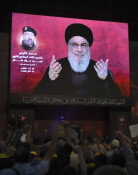Comprehensive real estate holding tax should be abolished for single homeowners
Comprehensive real estate holding tax should be abolished for single homeowners
Posted June. 03, 2024 07:46,
Updated June. 03, 2024 07:46
The government has launched a review of the comprehensive real estate holding tax system, considering a plan to abolish the heavy tax on the ownership of multiple houses. This move responds to the rapidly gaining momentum in political circles to overhaul the tax, starting with revising the punitive taxation on owning multiple houses. The leadership of the Democratic Party of Korea has called for a total redesign and a tax exemption for single-property ownership, specifically for primary residences, sparking additional calls for an overhaul. The presidential office has stated it will review the tax system, including the possibility of complete abolition.
Now in its 20th year, the comprehensive real estate holding tax has been controversial as a punitive measure for homeowners, necessitating reform to alleviate the burden on the people. This is due to its status as double taxation atop property taxes and its failure to fulfill its original purpose of stabilizing real estate prices, instead significantly expanding the taxpayer base as house prices soar.
Despite the current government's efforts to reduce the tax burden by increasing the basic deduction for single-home ownership to 1.2 billion won and restraining the rise in the realization rate of publicly notified prices, over 110,000 people were subject to paying the comprehensive real estate holding tax for owning one house last year. When it was introduced in 2005, it was seen as a "tax for the rich," targeting the top 1 percent of wealth. However, it has now become a "tax bomb," imposing a heavy burden on homeowners with single apartments in Seoul's main areas and middle-class individuals. Retirees with only one home have been compelled to take out loans to cover the tax.
In this scenario, the reform should target relieving burdens for individuals who own a single house, retirees, and middle-class homeowners facing excessive tax burdens due to the increased value of their sole property rather than those with three or more properties. The top marginal tax rate of 5 percent for owners with three or more houses is quite punitive. However, it may be feasible to consider unifying taxation by introducing a property tax system that separately taxes different property types, such as houses and land, rather than maintaining the current system.
The government is concerned that abolishing the tax will increase the so-called "owning a single expensive house" trend and could exacerbate equity controversies between those who own multiple inexpensive houses and those who own a single house. However, it should carefully consider these issues and implement comprehensive changes to both the comprehensive real estate holding tax and property tax systems. The government should not overlook this opportunity, especially considering that the major opposition party, which previously dismissed tax reform as a ‘tax cut for the rich,’ is now showing a significant change in stance. The punitive taxation label should first be removed from the comprehensive real estate holding tax for those who pay taxes for owning only one house, rather than for those who own multiple houses.







